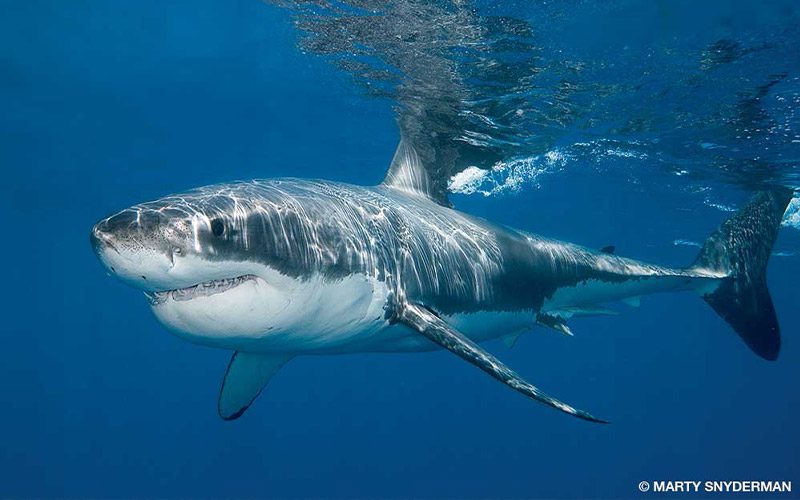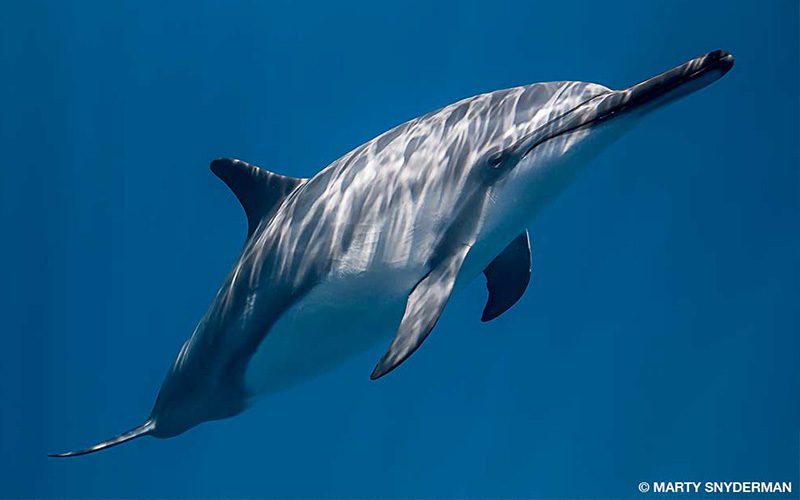The expedition began in confused seas with a 37-hour-long crossing that should have taken 10 hours. Following that delightful opening act, during my safety stop at the end of our first dive I watched an expedition member ascend so fast from 80 feet that the upper half of his body launched out of the water.
I surfaced and signaled for help. By the time we got the diver aboard the boat, he was showing signs of decompression sickness (DCS). The divemasters tended to him, and I contacted DAN® to arrange an evacuation.
That event, which took place in the early 1990s, was the first time DAN’s emergency medical support team was there for me. To ensure I was prepared for that sort of scenario is exactly why I became a DAN member in 1988.
I never imagined how DAN would help me the most recent time I called on them. I was at a party one evening during the Diving Equipment and Marketing Association (DEMA) annual trade show. One minute I felt fine, and the next I felt really strange. I was spatially disoriented and had difficulty keeping my balance.
I fought the symptoms for a few minutes, but I couldn’t will them away. I needed help getting back to my hotel room, and that journey took several hours, during which I had to sit down, put my head on a table and close my eyes. When I tried to walk I was told I was walking in a straight line, but I couldn’t tell. My world felt surreal.

I went straight to bed and felt much better when I got up the next morning. After eating breakfast, I went to the convention center. I felt normal for a couple of hours, but then my body betrayed me again. Once again I needed help.
I flew home to see my doctor as soon as I could. Based on my report and his exam, he sent me to a neurologist, an audiologist, a seizure specialist and an ophthalmologist. All were looking for tumors or other significant problems in my brain and my auditory and visual systems. This was serious stuff.
As I went from specialist to specialist several times a week for almost two months, I heard statements such as, “If we see things we don’t like today, we will take away your driver’s license” and “This could end your diving career.” I was scared — about my health and my future.
I was also frustrated. When I tried to describe my symptoms, I felt there was a serious disconnect between what I was saying and what the doctors were willing to hear. I am not suggesting that the tests I had were unnecessary — of course we had to consider the possibility of a tumor or similar problem. But long before that night at the DEMA show I had experienced some things while diving that I thought might be relevant, and I wanted the doctors to listen. Every time I tried to discuss the issue with the specialists, however, I was told that my diving history was not relevant. I wasn’t so sure about that.
So I called DAN and spoke with Jim Chimiak, M.D., who advised me to continue with the medical tests and keep him posted.
Nothing notable showed up on any of the tests, but I experienced a few more minor episodes that were similar to what I experienced at the DEMA show. During a long and thorough follow-up call a few weeks later, I told Dr. Chimiak that the sensations I experienced at DEMA reminded me of how I felt when I had a very serious bout of ciguatera. I had the foodborne illness almost 20 years earlier after I ate some grouper or snapper in the Bahamas. The symptoms also were reminiscent of how I felt after experiencing carbon monoxide poisoning during a dive four years earlier.
While Dr. Chimiak found this information interesting, he couldn’t say there was a direct link, but he told me that a statistical correlation exists between people who have had ciguatera and/or carbon monoxide poisoning and those people experiencing severe optical migraines later in life. These migraines can manifest in some very strange ways.

The DAN team referred me to the dive medicine clinic at the University of California, San Diego, for a follow-up exam. This clinic is staffed by doctors who are board certified in undersea and hyperbaric medicine. At the clinic I had a comprehensive interview that covered my medical and diving history, and during this four-hour evaluation I shared my experiences with ciguatera and carbon monoxide poisoning.
Ian Grover, M.D., the attending physician, spoke with Dr. Chimiak several times during my appointment, and they concluded that I was very likely experiencing some unusual — and unpleasant — optical migraines. They agreed that I could dive as long as I could manage these events. That meant I could continue my career as an underwater photographer and keep doing what I love in life.
The doctors I saw previously were on the verge of telling me I should end my diving career. But the DAN team listened to me, considered unusual possibilities, discovered the root of my problem and referred me to a physician trained in dive medicine, who evaluated me and cleared me to dive.
In yet another follow-up call, Dr. Chimiak suggested that I wear sunglasses in places with unusual or unpleasant lighting, which can trigger the type of migraines I experienced. On several occasions I have felt a migraine event coming on, and in every instance so far my symptoms have subsided within minutes after I put on my sunglasses — and I look cool.
I am truly grateful that DAN was there for me.
Note from Snyderman: “These photos were taken after I was cleared to return to diving. I would not have enjoyed any of these encounters or captured these images without DAN’s help.”
© Alert Diver — Q2 Spring 2016